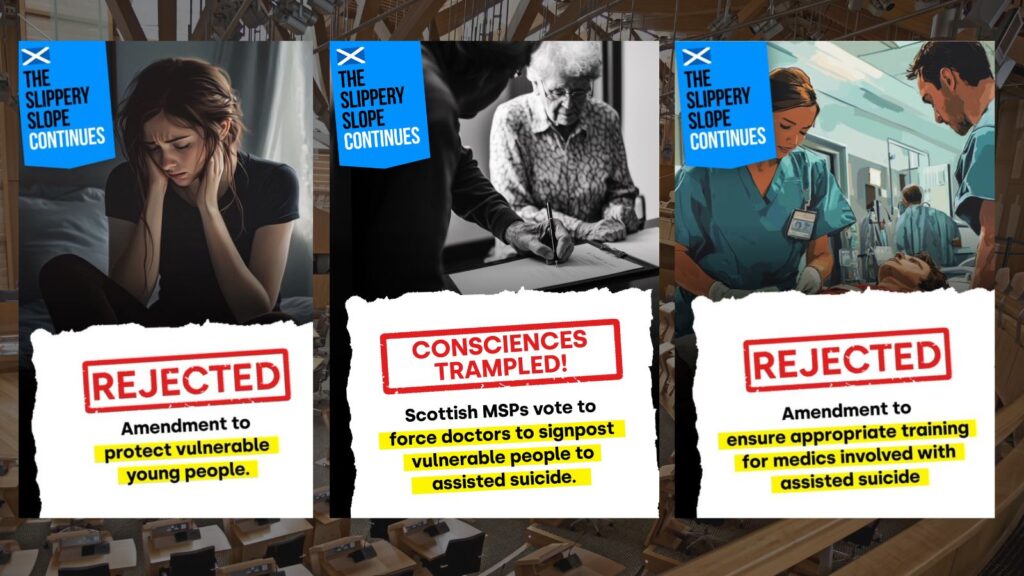A raft of amendments that would have strengthened safeguards in proposed assisted dying legislation have been rejected.
Liam McArthur’s Assisted Dying for Terminally Ill Adults (Scotland) Bill, which seeks to introduce state-assisted suicide for adults diagnosed with terminal illnesses, is being subjected to further scrutiny in Parliament, including proposed amendments by MSPs.
👎ANOTHER SAFEGUARD REJECTED! Pro-assisted suicide MSPs vote against an amendment to stop under-25s accessing assisted suicide, even though the Scottish Sentencing Council says the brain isn’t fully matured until 25. Vulnerable students fresh out of school could now be eligible. pic.twitter.com/qNsPzBB6hY
— Right To Life UK (@RightToLifeUK) November 11, 2025
Among the most notable amendments dismissed by Holyrood’s Health and Sport Committee were proposals aimed at tightening eligibility and safeguarding vulnerable individuals.
- REJECTED: An amendment that would restrict eligibility to those with six months or less to live.
- REJECTED: A proposal requiring individuals seeking assisted suicide to have a fully costed palliative care support plan, ensuring that all care alternatives were explored before proceeding with an assisted suicide.
- REJECTED: An amendment that would have mandated the decision for assisted death be made entirely without influence from medical professionals, witnesses, or caregivers; an astonishing decision given a key driver for this legislation is autonomy.
- REJECTED: a proposal to exclude individuals whose motivations stem from non-terminal conditions, including intellectual disabilities such as Down’s Syndrome, eating disorders such as anorexia, loneliness, financial hardship, and feelings of being a burden.
Jeremy Balfour MSP said:"People managing long-term conditions, people receiving treatment that stabilises their illness, people who still have meaningful time ahead of them, would all fall within the scope of the Bill as drafted at the moment.”
'Troubling'
Pam Duncan-Glancy, the first permanent wheelchair user elected to the Scottish Parliament, told the committee that she was diagnosed with juvenile idiopathic arthritis when she was 18 months old and “it is not something I’m going to recover from”, adding that she would qualify as ‘terminally ill’ under the Bill as it stands.
Anthony Horan, Director of the Catholic Parliamentary Office, said: “These amendments were clearly designed to protect some of the most vulnerable people in our communities from being coerced into a premature death; disabled people, those with poor mental health, and people struggling with financial hardship.
“Their rejection is deeply troubling and suggests a direction of travel that should alarm MSPs right across the Parliament.”
Paul Atkin, pro-life officer at the Archdiocese of St Andrews & Edinburgh, told CNA: “The bill’s definition of ‘terminal illness’ is so vague that it could include people with conditions such as dementia or heart failure, who may live for years. The boundaries keep moving, and what starts as a choice for a few becomes an assumption for many.
“We should be honest: This law would put some lives at risk — not from disease, but from despair.
"True compassion means standing beside those who suffer, not offering to end their lives. Scotland can do better than that.”
The committee will meet again next Tuesday to continue consideration of amendments. This article abridged from the Catholic Parliamentary Office. Watch our webinars on this issue here. Title images via Right to Life.
